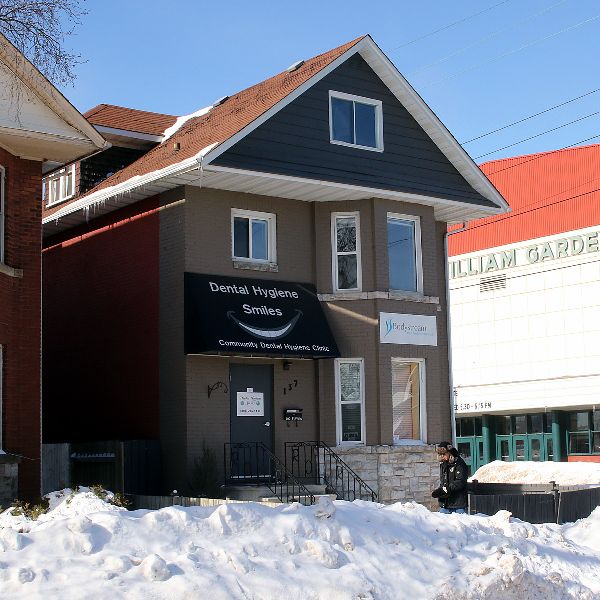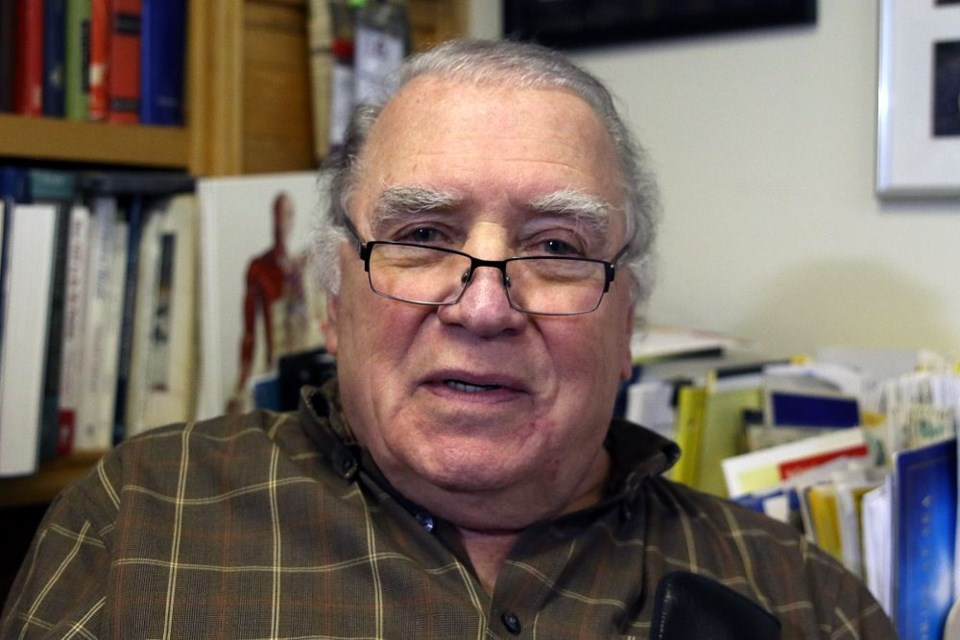Jack Remus isn’t opposed to medical marijuana.
But the long-time Thunder Bay physician and orthopedic surgeon thinks it should only be prescribed to treat the most serious of ailments, end-of-life relief for patients suffering terminal illnesses – a way to help ease their pain in their final days.
Remus said metastatic cancers, and diseases like amyotrophic lateral sclerosis – also known as Lou Gehrig’s disease – are examples of ailments for which he would consider prescribing cannabis.
Post-traumatic stress, ADHD, anxiety, degenerative discs, fibromyalgia, migraines, sleep disorders and chronic pain are examples of conditions for which he would not.
The latter list is why Remus is vehemently opposed to a new Thunder Bay company offering to connect patients with southern Ontario doctors to help them legally obtain prescriptions for medical marijuana.
Bodystream, located on Thunder Bay’s south side, opened for business on Monday. Potential users of medical marijuana can meet with a physician via video conference, present his or her symptoms and if the doctor agrees, a prescription is written.
 No fee or referral for the consultation is required.
No fee or referral for the consultation is required.
“When this first came around about four or five months ago, I spoke to almost every specialist and (almost) every physician in Thunder Bay and there was not one that ever thought this was necessary,” Remus said.
He then spoke with the Ontario Medical Association, the Canadian Medical Association and the Canadian Medical Protective Society for their input.
“They agreed with me that there are only five conditions, which are pretty terminal, that need you to (prescribe medical marijuana),” Remus said.
“This is just opening up the door.”
Remus, who also takes care of patients at the Thunder Bay District Jail, said most are there because of addictions.
“And to my knowledge, at this time, the federal government has not legalized marijuana.”
Medical marijuana, under strict guidelines, is legal and new Prime Minister Justin Trudeau campaigned on a pledge to legalize the drug, which 44 per cent of Canadians say they’ve used at least once, according to the Centre for Addiction and Mental Health.
Brian Warner, Bodystream’s chief executive officer, politely disagreed with Remus’ assessment.
Warner said clients must prove they have a chronic condition before a consultation is even scheduled. Medical documentation is required, he said.
“From there then we would set you up with our doctor who would see if it was a suitable treatment alternative,” Warner said.
The reason for utilizing doctors outside of Thunder Bay is that few, if any, physicians in the city are versed in the proper use of marijuana as medicine.
Other doctors aren't comfortable writing a prescription for medical cannabis, Warner added.
“They won’t provide it for various reasons and I know patients are frustrated. But it’s like any other medicine,” Warner said.
“If the doctor wasn’t familiar with it, why would they prescribe something they’re not familiar with?”
Warner added they’ve had a number of patients from Thunder Bay visit their clinic in southern Ontario for the express purpose of obtaining a medical marijuana prescription. The response since Bodystream arrived in the city has been phenomenal, Warner said.
“We’ve been overwhelmed.”
Marijuana is not kept on site, he stressed, noting they are not a dispensary.
“We’re just a clinic, no different than any other walk-in clinic or medical clinic you would go to,” Warner said. “The patient comes in, we provide you with a medical document for a prescription for the cannabis and then we connect them with a licensed producer.”
Health Canada designates who may grow medical-grade pot.
Officials with the Thunder Bay Police Service say they are not concerned because there is no marijuana on site.
Sign in or register
- Messages
- Post a Listing
- Your Listings
- Your Profile
- Your Subscriptions
- Your Likes
- Your Business
- Support Local News
- Payment History
Registered Users
Already have an account?
New Users
Create a free account.
